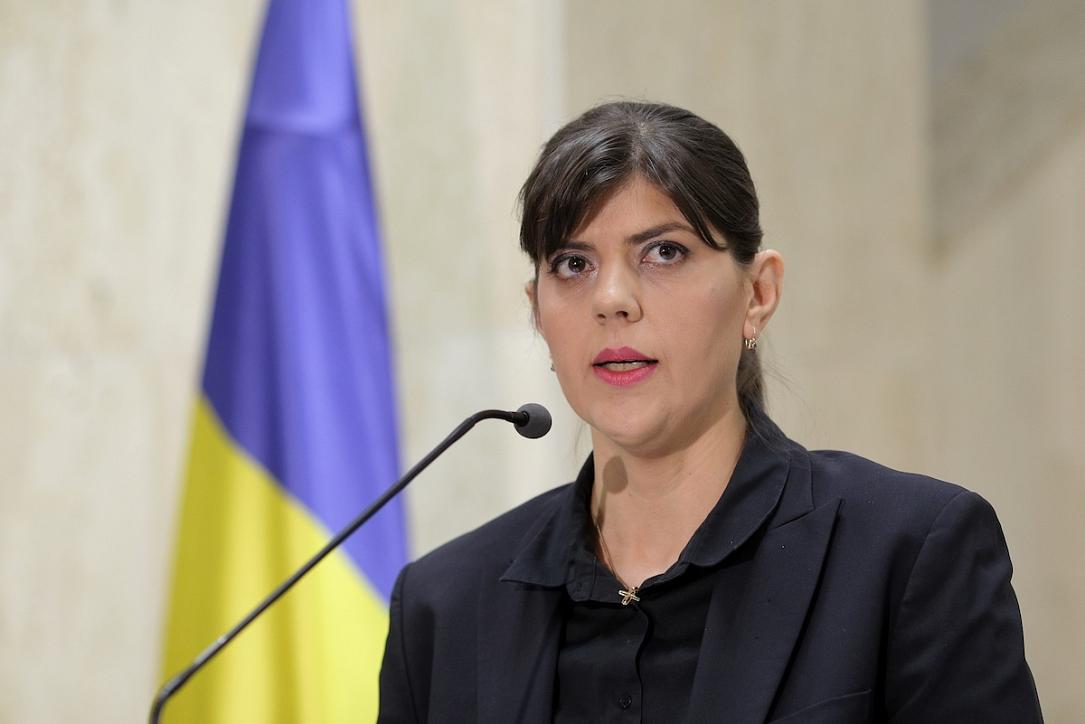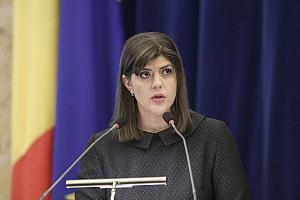Human Rights Court rules that Romania's former anticorruption head wrongfully dismissed

Romania violated the rights of the former anticorruption directorate (DNA) chief prosecutor Laura Codruţa Kovesi when dismissing her before the end of her mandate, the European Court of Human Rights (ECHR) said.
In a ruling published on Tuesday, May, 5, the Court found that there had been a violation of the right to a fair trial (Article 6 § 1 of the European Convention on Human Rights) and of the right to freedom of expression (Article 10 of the European Convention on Human Rights).
The ruling is available here.
Laura Codruta Kovesi headed the National Anticorruption Directorate for five years, from 2013 until July 2018, when president Klaus Iohannis signed her dismissal after the Constitutional Court compelled him to do so. She appealed her dismissal at the European Court of Human Rights at the end of 2018.
Kovesi argued that she had been denied access to a court to contest the premature termination of her mandate as chief prosecutor of the National Anticorruption Directorate (DNA). She also complained that her mandate had been terminated as a result of the views and positions that she had expressed publicly, in her professional capacity, concerning legislative reforms affecting the judiciary.
The Court found that there had been no way for Kovesi "to bring a claim in court against her dismissal as such proceedings would only have been able to examine the formal aspects of the presidential decree for her removal and not her substantive argument that she had been incorrectly removed for criticizing the legislative changes in corruption law," according to an ECHR press release.
At the same time, her right to freedom of expression was violated "because she had been dismissed for those criticisms, which she had made in the exercise of her duties on a matter of great public interest."
During Kovesi's mandate at DNA's helm, the institution recorded an unprecedented string of high-profile corruption cases, targeting former prime ministers, ministers, MPs, and other top politicians. DNA's results brought Kovesi international fame and decorations from the embassies of western powers, who praised Romania's anticorruption campaign.
The Social Democratic Party (PSD), which came to power in December 2016, a series of legislative changes aimed at limiting the prosecutors' powers. PSD and its allies also carried out a campaign aimed at discrediting the DNA, alleging that the anticorruption prosecutors worked together with intelligence officers to the benefit of a so-called "shadow state," an occult structure that aimed to take power from the parties that won the elections.
After her dismissal from the DNA, Kovesi moved on to become the first head of the new European Public Prosecutor's Office.
The ruling issued on May 5 is not final. During the three-month period following its delivery any party may request that the case be referred to the Grand Chamber of the Court.
(Photo: Octav Ganea/ Inquam Photos)
editor@romania-insider.com













